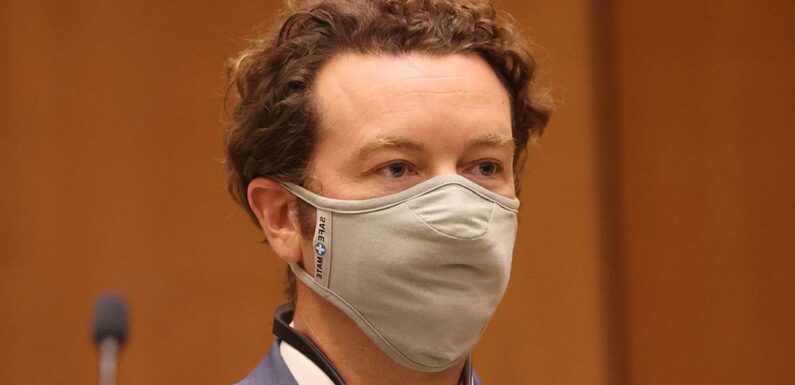
Attorneys are set to give opening statements in the Danny Masterson rape trial on Tuesday, as a jury is expected to be chosen by mid-morning.
Over the last week, the initial pool of 225 potential jurors has been narrowed to about 85. On Monday, the defense and the prosecution began to question the potential jurors in open court — in what is called voir dire — after an initial round of screening from Judge Charlaine Olmedo.
One of the key questions has been how much the potential jurors know about Scientology. Masterson is a Scientologist and each of his three accusers was a Scientologist at the time of the alleged rape. The accusers — now all ex-Scientologists — have said that they delayed going to the police out of concern that they could be excommunicated.
At the outset of his questioning, defense attorney Philip Cohen emphasized that Scientology is not on trial.
“Scientology is not a party (in the case), but you’re going to hear about it,” Cohen said. “Whether you feel so strongly about your religion — or so strongly against other religions — that’s going to be an issue.”
Over the last several days, numerous jurors have said that they have seen or read something about Scientology. By far the most popular source of information was “Scientology and the Aftermath,” the A&E docuseries hosted by ex-Scientologist Leah Remini, a critic of the church. The two-hour finale of that show, in 2019, included a discussion of the Masterson case. Masterson’s lawyers have argued that Remini is effectively a “victim advocate” for one of the accusers.
Many of the jurors who said they watched the show have already been excused, though no reason was given for their removal.
The jurors who are familiar with the church have not been asked to offer any details of what they have seen or read, so as not to taint the other jurors. One of them said he had read numerous articles about the church. Asked by the judge to say only whether the articles were positive or negative, he said, “I don’t believe I’ve read a positive article about that organization.”
He was excused.
Many jurors said they knew little or nothing about the church. A few identified Tom Cruise as a Scientologist, but knew nothing beyond that about church beliefs and practices. Some said they had only heard the name “Scientology.”
“I’ve seen their majestic building,” said one person.
At least one person said she had read L. Ron Hubbard’s “Dianetics,” or a similar book, and others said they had seen ads promoting Scientology. A couple said they had seen TV ads in which L.A. mayoral candidate Rick Caruso attacks rival Karen Bass for appearing at a Scientology event.
Only two jurors said they had ever met a Scientologist. One said he worked at a company in the 1990s where the owner, and most of the staff, were Scientologists. He said his co-workers didn’t talk much about their religion.
“I may have asked,” the person said. “It was a long time ago.”
That person was excused. Another juror said that he had friends who had left the church and who had complaints about it.
“They considered it a traumatic experience,” he said. “I know it’s a restrictive organization.”
The juror said that it would be hard to put that aside and be fair. It appeared that the person had been excused by lunchtime on Monday.
But the vast majority of the jurors said they could be fair to Masterson regardless of his religion.
Addressing the jurors on Monday afternoon, Cohen called Scientology “the elephant in the room.”
“Does Mr. Masterson’s former and current relationship and involvement and status as a Scientologist have any impact on how you view him with respect to the government’s burden to prove the charges?” Cohen said. “This is something I really need to know.”
No one raised their hand.
The jurors were also asked for their feelings about the #MeToo movement. One man expressed doubt about allegations from long ago.
“Why does it take so many years for someone to come forward?” he asked.
Another man, who described himself as a feminist, said he felt an inclination to support an accuser’s testimony.
“I think a victim that has the courage to take the stand — there may be some element of truth,” he said.
Asked if he would able to set aside his predisposition and follow the judge’s instructions, he said, “I think personally it would be difficulty to do so.”
Cohen thanked him for his honesty.
“That is voir dire,” Cohen said.
Read More About:
Source: Read Full Article